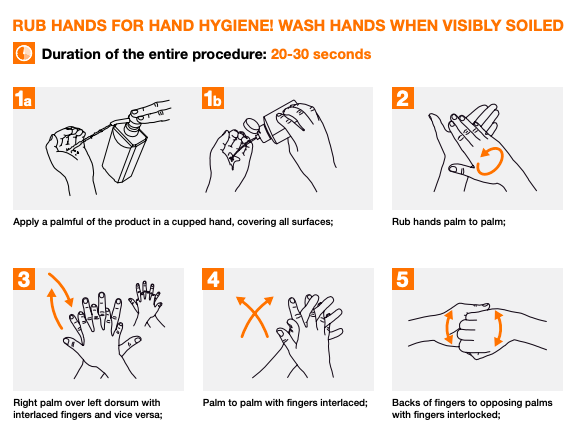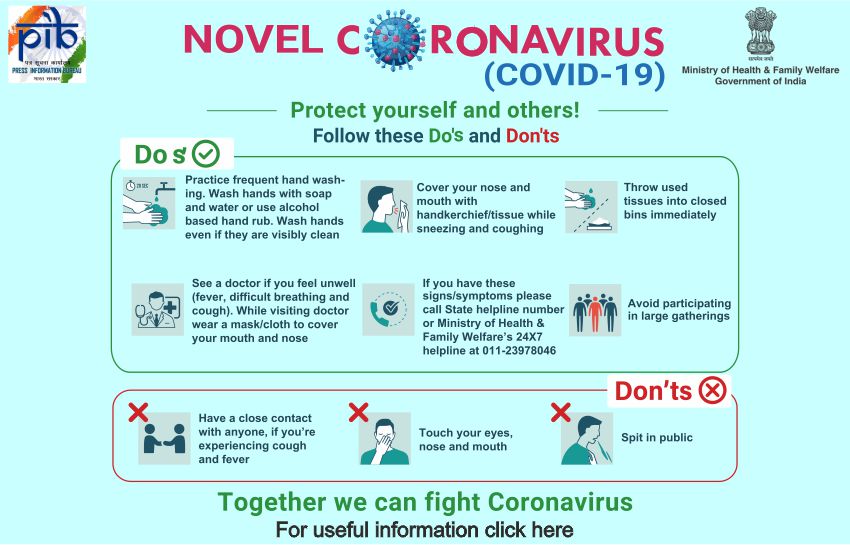
According to the recent studies, the coronavirus infection is more rampant in the coastal areas and animal & seafood markets. It is reported that the person infected from coronavirus was possibly infected from exposure to animals. Significantly, After the recent reports of deaths and spread of coronavirus, The World Health Organization (WHO) advised the nations to take essential measures globally.
However, In a statement issued by the Ministry of External Affairs, Government of India, spokesperson Raveesh Kumar stated that, The precautions taken by India are in accordance with the WHO’s advisory about the outbreak of Coronavirus infection, which is a global public health emergency, the government had already responded to the needs of our Chinese friends, and allowed a one time exemption for the export of some items which had been restricted for export, he asserted on Feb 23.
In other words, WHO has advised to Wash your hands frequently, Regularly and thoroughly clean your hands with an alcohol-based hand rub or wash them with soap and water. As per the International Health Regulations, Centre for Disease Control flagged travel at level 1, which means that there is low risk and does not pose a major threat to healthy humans. Countries are also advised to prepare necessary measures to tackle the possible outbreaks.
Read Also, Outbreak of Coronavirus puts “global recovery” at risk: IMF to G20 and WHO

Preventive measures for COVID-19 by WHO:
Meanwhile, WHO and CDC advised nations to take certain preventive measures and checks at the airports, which could help in finding the spread and control of coronavirus. Everyone must follow the following measures:
- Avoid traveling to animal or seafood markets.
- Avoid close contact with infected people.
- Always carry a hand sanitizer.
- Clean your hands after tending sick people, sneezing or coughing, treating wounds.
Since there are no direct remedies for treating coronavirus, natural herbs or plants containing antiviral properties can help in preventing or mitigating the effects of coronavirus. It should also be noted that there are around seven different coronaviruses that affect humans.
Following the above, Washing your hands with soap and water or using alcohol-based hand rub kills viruses that may be on your hands. So Maintain social distancing Maintain at least 1 meter (3 feet) distance between yourself and anyone who is coughing or sneezing, The WHO remarked.
When someone coughs or sneezes they spray small liquid droplets from their nose or mouth which may contain the virus. If you are too close, you can breathe in the droplets, including the COVID-19 virus if the person coughing has the disease. Avoid touching eyes, nose and mouth, It said.
Moreover, Hands touch many surfaces and can pick up viruses. Once contaminated, hands can transfer the virus to your eyes, nose or mouth. From there, the virus can enter your body and can make you sick. Practice respiratory hygiene makes sure you, and the people around you, follow good respiratory hygiene. This means covering your mouth and nose with your bent elbow or tissue when you cough or sneeze. Then dispose of the used tissue immediately.
Further, Droplets spread the virus. By following good respiratory hygiene you protect the people around you from viruses such as cold, flu and COVID-19. If you have fever, cough and difficulty breathing, seek medical care early stay home if you feel unwell. If you have a fever, cough and difficulty breathing, seek medical attention and call in advance. Follow the directions of your local health authority.
Hence, Please Keep informed on the recent developments with regard to COVID-19. And must follow the preventive measures which is given by your healthcare provider, your national and local public health authority or your employer on how to protect yourself and others from COVID-19. Also, National and local authorities will have the most up to date information on whether COVID-19 is spreading in your area. They are best placed to advise on what people in your area should be doing to protect themselves.
Despite the same, WHO organised a global research and innovation forum on February 11-12 to mobilize international efforts to combat the deadly novel coronavirus outbreak. This will bring together key players in critical public health research and the development of vaccines, therapeutics and diagnostics, among other innovations. WHO Director-General Tedros Adhanom Ghebreyesus remarked.
Consequently, As per the research, University of California researchers remarked that many of the bat viruses jump to humans through an animal intermediary. SARS got to humans through the Asian palm civet; MERS via camels; Ebola via gorillas and chimpanzees; Nipah via pigs; Hendra via horses and Marburg through African green monkeys. Nonetheless, these viruses still remain extremely virulent and deadly upon making the final jump into humans.
(Author: Azad Khabar, Staff Reporter).
Note: Content may be edited for style and length. (Edited and reviewed by Trilok Singh).





